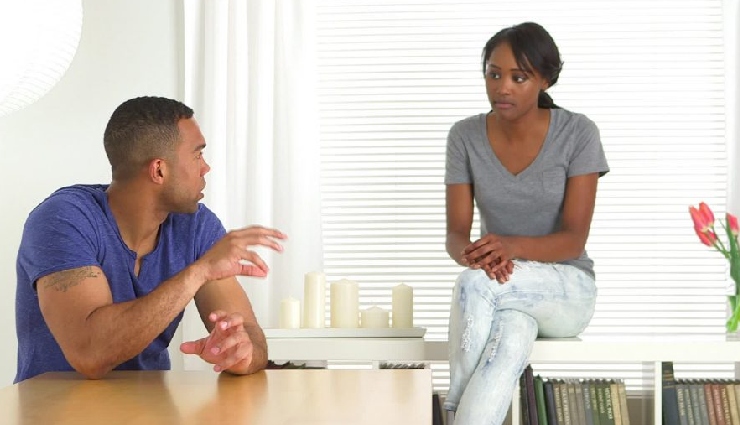- Home›
- Mates & Me›
- 10 Tips To Help You Deal With Body Shaming In Relationship
10 Tips To Help You Deal With Body Shaming In Relationship
By: Mansi Tue, 06 May 2025 11:09:40

If your spouse makes hurtful comments about your body, it can leave you feeling confused, ashamed, and unsure how to respond—or whether this behavior is even normal.
In this guide, we’ll explore how body shaming can affect a marriage and offer practical ways to address and overcome it.
What Is Body Shaming?
Before diving into its impact in relationships, it’s important to understand what body shaming actually is.
From a psychological perspective, body shaming refers to unwelcome negative remarks about someone’s physical appearance. These comments might not always be intended to hurt, but they often do.
Body shaming exists on a spectrum. It might show up as seemingly harmless “advice” about weight loss or as outright cruel insults. In a marriage, it happens when one partner consistently makes critical remarks about the other’s body, often leading to emotional pain.

# Start with Honest Communication
Sometimes, your partner might not even realize their words are hurtful. One of the most effective first steps is simply to talk about it.
You could say something like, “You might not be aware, but when you comment on what I eat or wear, it really hurts my feelings.”
Once you've calmly and clearly communicated how you feel, it’s up to your partner to reflect and change their behavior.
# Explore the Root Cause
If body shaming continues, it may be a reflection of deeper personal issues. Your spouse could have grown up in an environment where body criticism was normalized, or they might be struggling with their own insecurities or societal pressures.
Understanding the root of this behavior can open the door to more productive conversations—and healing.
If your partner claims their comments come from concern for your health, remind them that criticism isn’t the path to positive change. Ask them to express their concerns constructively and respectfully.

# Assert Yourself
If you’ve expressed your feelings and the body shaming continues, it’s time to stand up for yourself.
You might say, “It’s not okay for you to speak about my body like that.” This sets a clear boundary and reinforces that you deserve respect.
# Set Boundaries
Establishing what is and isn’t acceptable behavior is crucial. Maybe you’re okay with collaborating on healthy lifestyle choices, but jokes or jabs about portion sizes cross a line.
Be explicit about what bothers you and reinforce those boundaries if they’re crossed.

# Understand the Triggers
It helps to know that body shaming often stems from your partner’s own emotional state—it might have little to do with you. Stress, anger, or even unresolved conflict might lead them to lash out in unhealthy ways.
Recognizing this doesn’t excuse the behavior, but it may help you take things less personally and respond with more clarity.
# Reflect on Your Own Behavior
Take a moment to assess if you've inadvertently encouraged a culture of body shaming. If you often criticize your own body or make negative remarks about others, your partner might think such behavior is acceptable.
By showing self-compassion and speaking kindly about others, you model healthier behavior for your relationship.
# Make Specific Requests
If general conversations aren’t making a difference, be more direct. For instance: “Please stop making comments about the size of my stomach.”
Specific, clear requests leave little room for misunderstanding.

# Share Your Vision for the Relationship
Approach the issue with a focus on connection and growth. Express your desire to feel loved, attractive, and emotionally safe in the relationship.
Framing the conversation around improving your bond can motivate your partner to be more thoughtful and empathetic.
# Evaluate the Bigger Picture
Sometimes, taking a step back can help. If your relationship is generally loving, respectful, and supportive, there’s a good chance you can work through body shaming with honest effort and communication.
Focusing on your relationship’s strengths can be a powerful tool for healing.

# Seek Professional Support
If the issue persists or significantly affects your self-esteem and emotional health, consider seeking help from a therapist—either individually or as a couple. A trained professional can help unpack the deeper issues at play and guide both of you toward healthier patterns.





